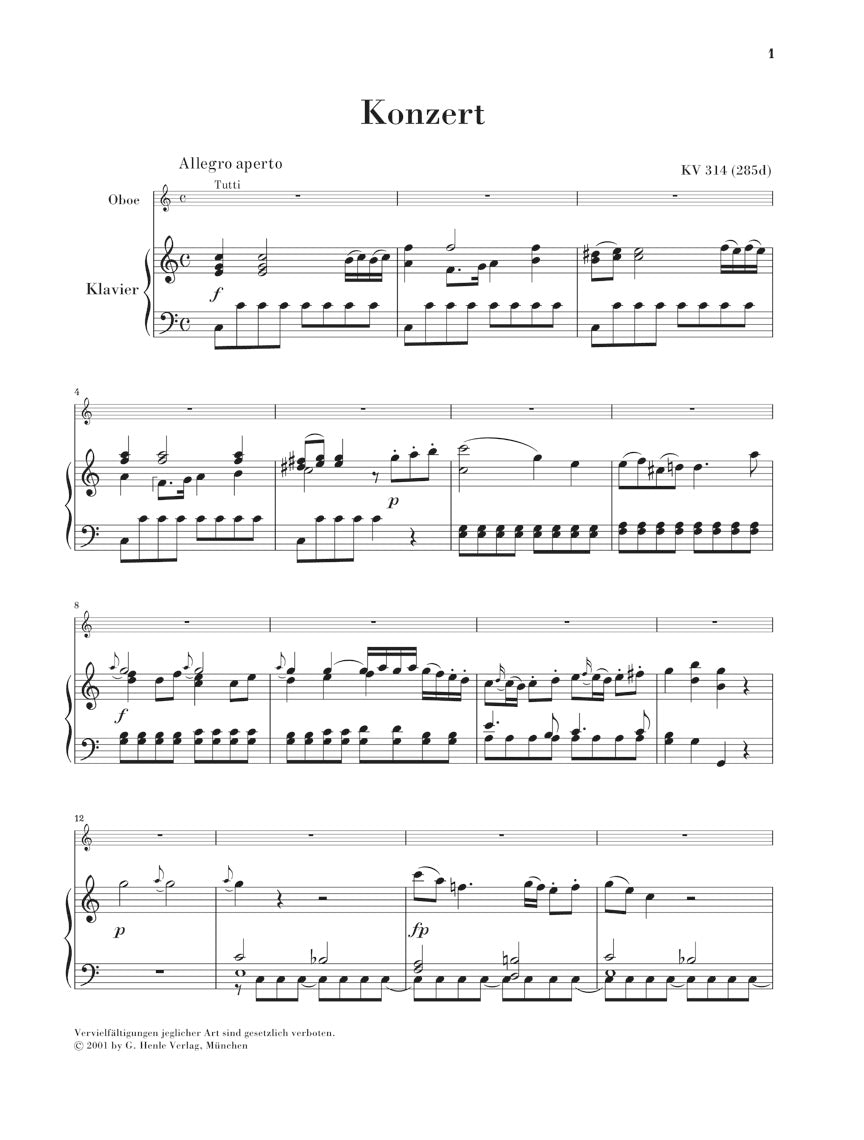This Henle Urtext edition is unrivalled in layout and precision. The professional journal “Rohrblatt” wrote shortly after its publication (in 2004): “An editorial stroke of genius... Every oboist who attempts this concerto must have his interpretation measured against this edition.” Such praise principally honors the editor, the famous oboist Ingo Goritzki. It was his idea to offer a supplement to the edited instrumental part that presents both sources of the work – each problematic in various ways – together with the edited part. Owing to this chosen arrangement of the score one can see all variants at a glance, and make one's own justified performance decisions. Particularly problematic and oft-debated passages are discussed in detail by Professor Goritzki. The above-cited praise for “an editorial stroke of genius” also applies to Mozart expert and pianist Robert Levin, who has composed idiosyncratic cadenzas in the master's style especially for Henle's edition of Mozart's oboe concerto; very much in the improvisatory spirit of a cadenza, one can jump from one place to another in the template thanks to a simple (numerical) cross-reference system, and thus craft one's “own” cadenzas. Finally, a word about the much-praised piano reduction for this edition, which comes from Mozart expert and renowned continuo specialist Siegfried Petrenz. He aims for a well-sounding and not too technically-challenging keyboard part that is clearly removed from those often-found piano reductions that orient themselves around an orchestral scoring. In so doing, he also takes account of the typical instructional situation in which a professional accompanist is not always available to the oboist.




